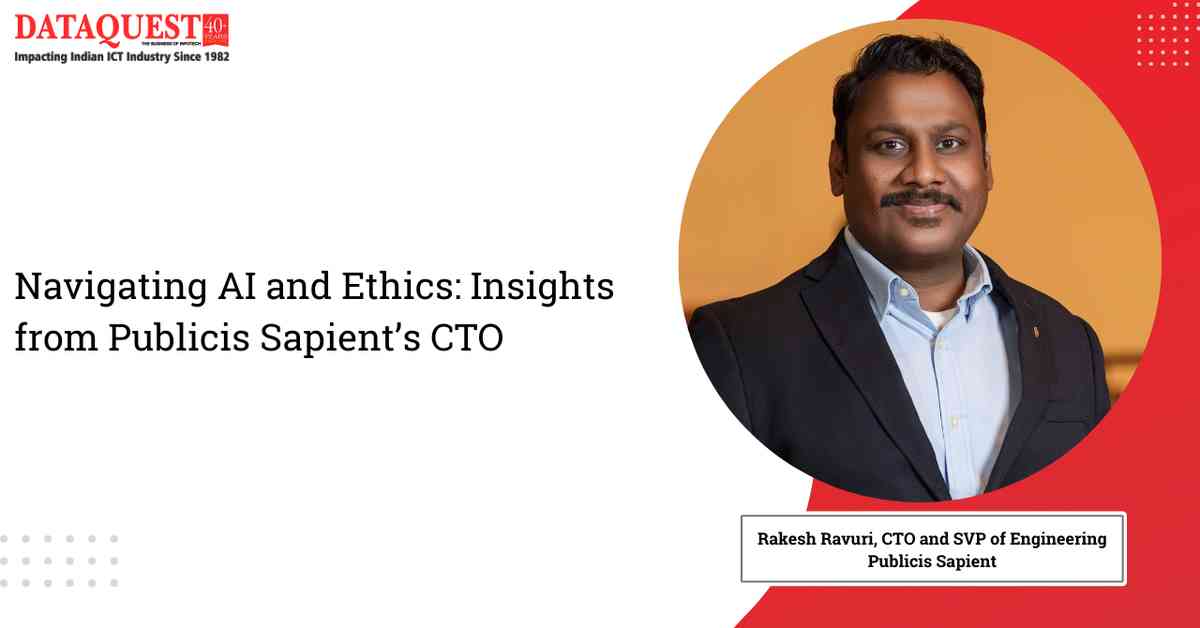In the realm of digital transformation, companies like Publicis Sapient are taking the lead in helping businesses navigate the ever-changing technological landscape. With a focus on customer-centric experiences and agile methodologies, Publicis Sapient is at the forefront of innovation by integrating AI, data science, and engineering excellence into its core operations. Rakesh Ravuri, the Chief Technology Officer and Senior Vice President of Engineering, is spearheading this transformation with his wealth of expertise in digital strategy for Fortune 500 companies.
In a recent interview, Rakesh shared his insights on the power of AI in software development, the evolution of engineering in the digital age, and the strategies Publicis Sapient is implementing to empower its engineering teams for a future driven by AI advancements.
As the CTO and SVP of Engineering at Publicis Sapient, Rakesh’s role is to lead global engineering teams, guiding them to innovate and deliver solutions that meet clients’ needs on a global scale. Publicis Sapient follows the SPEED framework—Strategy, Product, Engineering, Experience, and Data & AI—to drive digital business transformation. The company’s vision is to sustain its momentum and aggressively pursue growth across all aspects of SPEED, with a focus on becoming more AI-driven and integrating AI solutions seamlessly into its work.
Rakesh emphasized the rapid advancement of AI and the challenge of keeping pace with this technology. While AI has the potential to revolutionize the software development industry, the key question is whether people can adapt and reskill quickly enough to leverage its benefits. Publicis Sapient views AI and other technological advancements as essential for building a resilient future and believes that agile engineering is crucial for staying ahead in this rapidly evolving landscape.
Despite the rapid evolution of AI technology, Rakesh highlighted the enduring value of traditional software engineering practices. Publicis Sapient blends these traditional methods with innovative AI-driven approaches to create solutions that are both relevant today and future-ready. An example of this approach is PS Bodhi, a solution that combines traditional engineering with cutting-edge innovation to scale generative AI effectively.
To enhance engineers’ skills in AI and machine learning, Publicis Sapient has introduced initiatives like AI Assisted Software Development and AI engineering. These initiatives empower teams to apply AI more effectively and foster a culture of continuous learning and evolution. According to Rakesh, essential skills for engineers today include a strong foundation in data engineering and machine learning principles, proficiency in languages like Python, and an understanding of data manipulation and model training.
In addressing ethical challenges related to AI integration, Rakesh emphasized the importance of a comprehensive regulatory framework that encourages innovation while addressing risks. Publicis Sapient conducts rigorous audits to ensure AI systems are fair, secure, and unbiased, focusing on algorithmic transparency, privacy-preserving techniques, and bias evaluation systems.
Looking to the future, Rakesh stressed the need for engineers to adapt their mindset and behaviors to succeed in an increasingly AI-driven environment. He highlighted the importance of redesigning solutions using generative AI patterns, embracing a learning mindset, fostering collaboration, and developing diverse skills across SPEED capabilities.
In conclusion, Rakesh shared his thoughts on the future trajectory of AI in software development, emphasizing the transformative impact of AI technologies on businesses. He advised upcoming engineers to cultivate a deep understanding of AI and its applications, embrace continuous learning, and develop a diverse skill set to thrive in the evolving landscape of software development. By staying curious and adaptable, engineers can position themselves for success in a future where AI expertise will be foundational for all roles in the industry.
